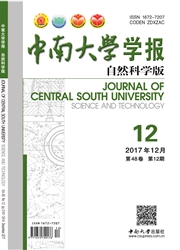

 中文摘要:
中文摘要:
将逼近理想解的排序法(TOPSIS)运用于地下工程岩体质量评价问题中,选用岩石质量指标、岩石单轴饱和抗压强度、岩体完整性系数、结构面强度系数和地下水渗水量5个影响因素作为地下工程岩体质量评价指标。基于粗糙集理论(RS),通过计算评价指标与评判结果的粗糙依赖度确定评价指标的重要性。以广州抽水蓄能电站1期地下工程岩体17组实测数据和13组插值数据作为学习样本,依据单指标分类区间下限构造5个不同等级的典型样本,通过计算典型样本与正理想解的相对贴近度来确定分类区间,建立RS-TOPSIS地下工程岩体质量评价模型,并逐一对30组学习样本进行回检,正判率为96.7%。将建立好的评价模型运用于该电站2期地下工程岩体质量评价。研究结果表明:采用地下工程岩体质量RS-TOPSIS评价方法获得的结果与突变基数法、BP神经网络法以及支持向量机法评价结果相吻合,该方法具有工程实用价值,可以运用于地下工程岩体质量评价。
 英文摘要:
英文摘要:
A method of technique for order preference by similarity to ideal solution(TOPSIS) was used to classify the quality of the rock mass in underground engineering.Five indexes,i.e.,rock quality designation,uniaxial compressive strengthen,rock mass integrality coefficient,strengthen coefficient of structural plane and seepage measurement of groundwater were selected to be the evaluation indicators.Based on rough set theory(RS),the significance of evaluation indicators was confirmed by calculating rough dependability between evaluation indicators and evaluation results.17 samples of the first stage project in Guangzhou pump accumulator electricity station and 13 samples produced by the interpolation method were taken as the training samples,five typical samples of different grades were created depending on the lower interval limits of single index evaluation,the classification was decided by calculating the relative closeness of typical samples to the positive ideal solution,and RS-TOPSIS model was established for the rock mass quality evaluation in underground engineering.Each of the 30 samples was tested according to the model,and the correct rate is 96.7%.And then the model was applied to predict the evaluation of second project.The results show that the evaluation results using RS-TOPSIS method agreed well with those of the catastrophe progression method,artificial neural network(ANN) method and support vector machine(SVM) method.The proposed method is of practical value and can be used to evaluate the quality of rock mass in underground engineering.
 同期刊论文项目
同期刊论文项目
 同项目期刊论文
同项目期刊论文
 期刊信息
期刊信息
